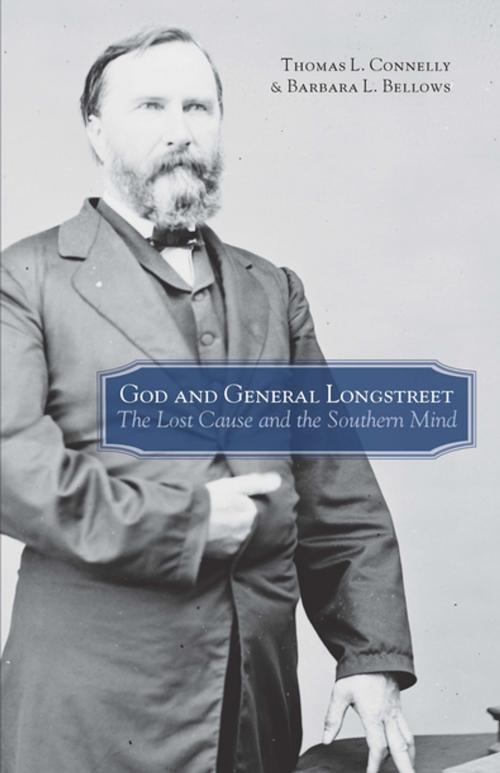God and General Longstreet
The Lost Cause and the Southern Mind
Nonfiction, History, Americas, United States, Civil War Period (1850-1877)| Author: | Thomas Lawrence Connelly, Barbara L. Bellows | ISBN: | 9780807165027 |
| Publisher: | LSU Press | Publication: | March 1, 1995 |
| Imprint: | LSU Press | Language: | English |
| Author: | Thomas Lawrence Connelly, Barbara L. Bellows |
| ISBN: | 9780807165027 |
| Publisher: | LSU Press |
| Publication: | March 1, 1995 |
| Imprint: | LSU Press |
| Language: | English |
More than a century after Appomattox, the Civil War and the idea of the
"Lost Cause" remain at the center of the southern mind. God and General
Longstreet traces the persistence and the transformation of the Lost Cause from the
first generation of former Confederates to more recent times, when the Lost Cause
has continued to endure in the commitment of southerners to their regional
culture.
Southern writers from the Confederate period through the
southern renascence and into the 1970s fostered the Lost Cause, creating an image of
the South that was at once romantic and tragic. By examining the work of these
writers, Thomas Connelly and Barbara Bellows explain why the nation embraced this
image and outline the evolution of the Lost Cause mentality from its origins in the
South's surrender to its role in a century�long national expression of defeat that
extended from 1865 through the Vietnam War. As Connelly and Bellows demonstrate, the
Lost Cause was a realization of mortality in an American world striving for
perfection, an admission of failure juxtaposed against a national faith in
success.
More than a century after Appomattox, the Civil War and the idea of the
"Lost Cause" remain at the center of the southern mind. God and General
Longstreet traces the persistence and the transformation of the Lost Cause from the
first generation of former Confederates to more recent times, when the Lost Cause
has continued to endure in the commitment of southerners to their regional
culture.
Southern writers from the Confederate period through the
southern renascence and into the 1970s fostered the Lost Cause, creating an image of
the South that was at once romantic and tragic. By examining the work of these
writers, Thomas Connelly and Barbara Bellows explain why the nation embraced this
image and outline the evolution of the Lost Cause mentality from its origins in the
South's surrender to its role in a century�long national expression of defeat that
extended from 1865 through the Vietnam War. As Connelly and Bellows demonstrate, the
Lost Cause was a realization of mortality in an American world striving for
perfection, an admission of failure juxtaposed against a national faith in
success.















